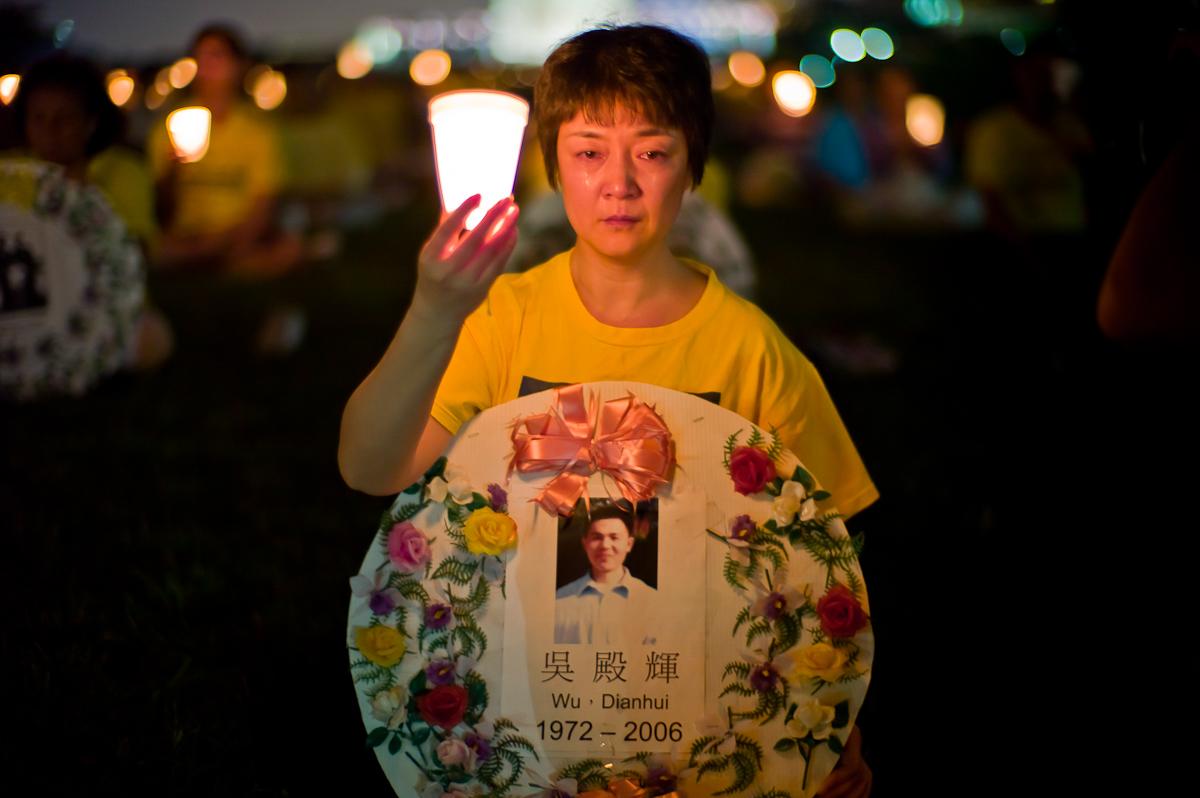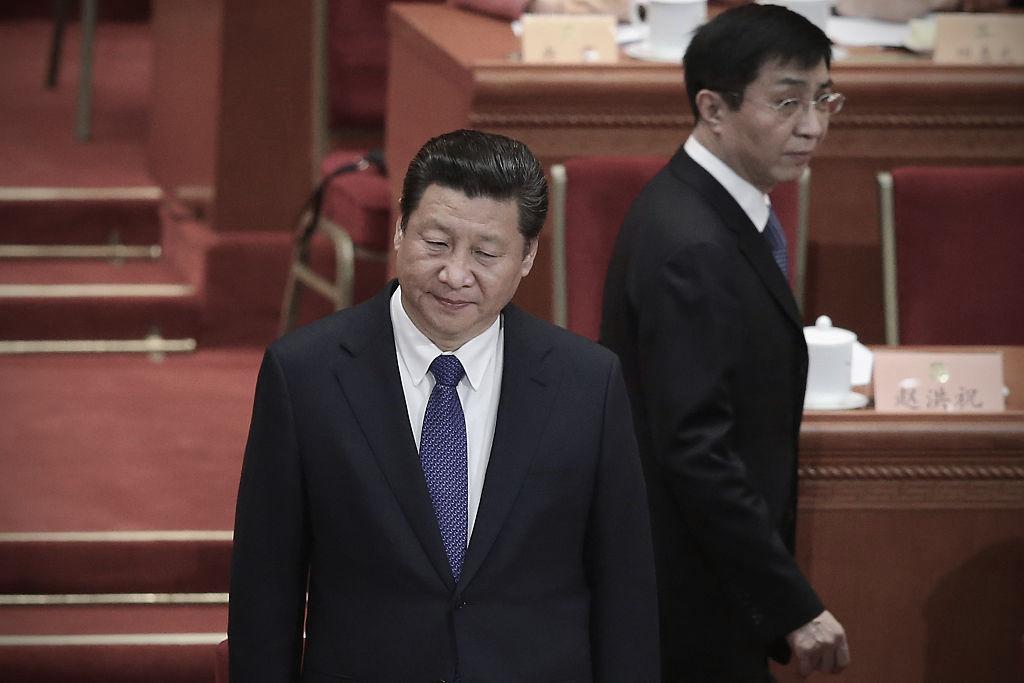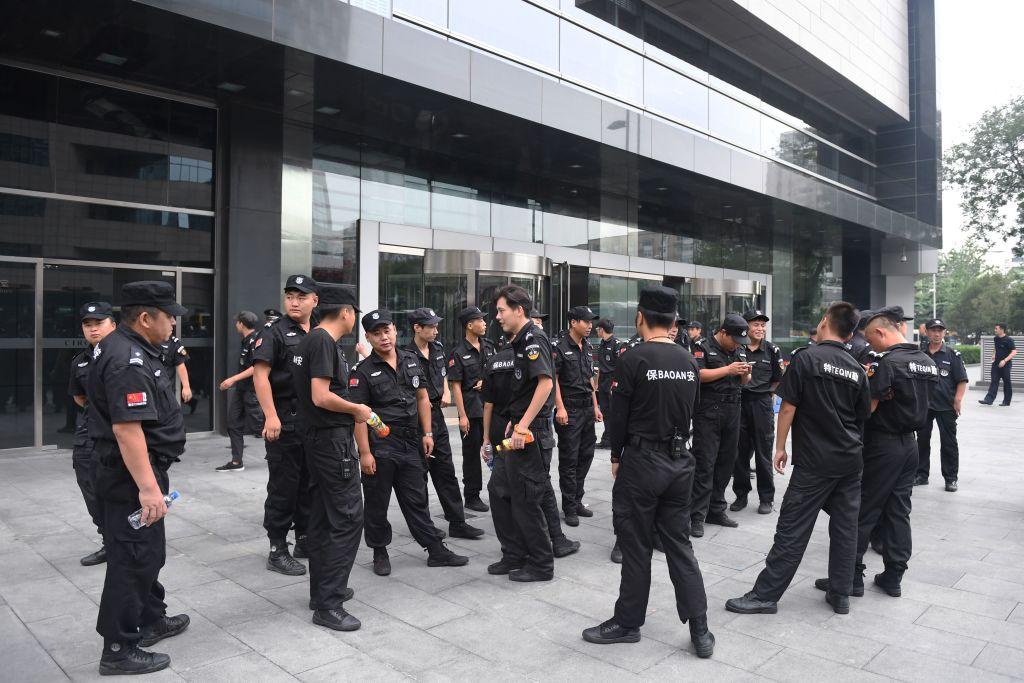Eighteen years ago on April 25, together with 10,000-plus Falun Gong practitioners, I stood quietly on Fuyou Street outside the Zhongnanhai Communist Party leadership compound in Beijing, where the Appeals Office of the State Council is located—the office the regime has established where people could complain of official misconduct.
It was a warm and sunny spring day; and the temperature was just about right, not too hot and not too cool. Although many people were there, it didn’t feel that way. Everybody just stood quietly. Most of the time, I was reading my “Zhuan Falun,” a book I always carried with me that lays out the core teachings of Falun Gong, which are based on the principles of truthfulness, compassion, and tolerance.

Jennifer Zeng honors a victim of the persecution at the Washington Monument on July 22, 2010. Mark Zou/Epoch Times




